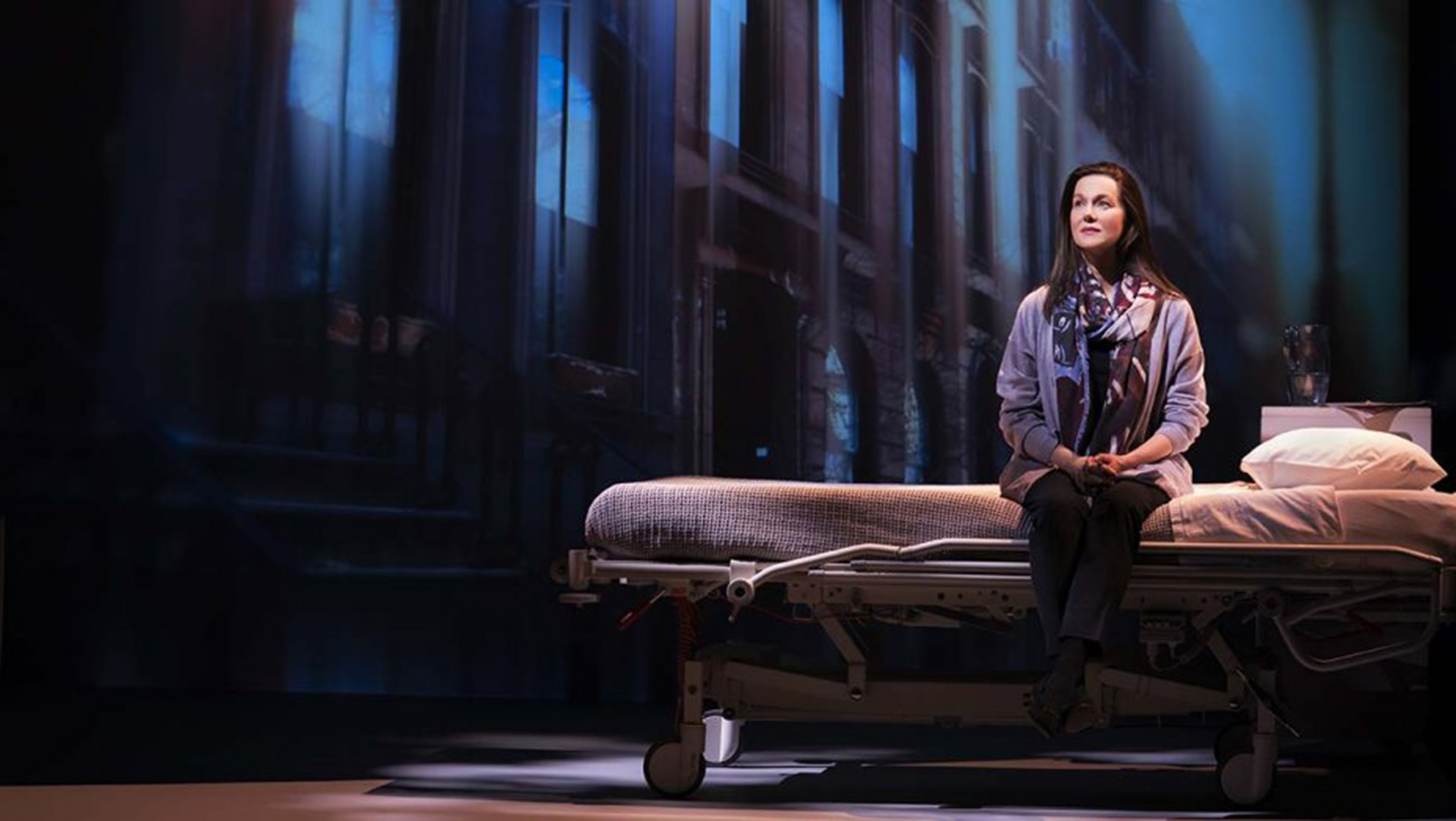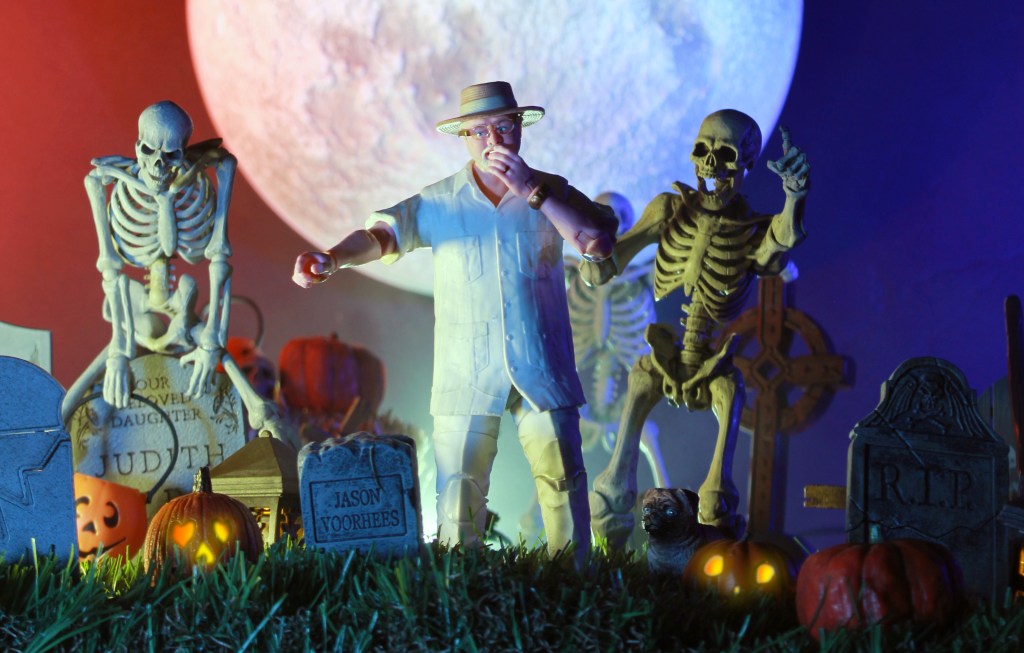Spotlight On Broadway Actresses

Laura Linney, truly an elixir of stage chemistry, commands a full 90 minutes of storytelling in the Manhattan Theatre Club’s production, “My Name is Lucy Barton.” It’s beguiling to hear this master storyteller convince us how essential it is to tell our own.
As transparent as she is mysterious, as lucid as she is troubled, as connected to herself as she is to the audience, Linney is an actor one just loves watching. And the story she tells us is about a woman who gently and profoundly strikes a chord with our collective unconscious in a way only a woman’s story can. It’s about mothers and daughters.
Adapted to the stage by Rona Munro from Elizabeth Strout’s novel, this one-woman monologue soars with musicality. The language is simple and beautiful.
It lives in a space that Lucy (Linney) shares with her mother in a nondescript hospital room. Lucy strives to share and understand their difficult relationship, a painful past. Raised in the sparsely populated farm town of Amgash, IL, Lucy’s experience of childhood poverty reveals more about her emotional deprivation than economic.
This is her midwestern mother’s first time in New York City — a place she describes as having no sky. Fortunately, Luke Halls’s video projections through the window of her room show a vast skyscape, a looming Chrysler building, alongside the corn fields where Lucy was raised.
When she was a child, Lucy recalls her mother often struck her “impulsively, vigorously.” When Lucy began to develop breasts, her mother told her she looked like the cows in the neighbor’s barn. Scorned by her peers, forced by her father to thank God for the food they ate, even though it was often molasses on bread, Lucy leads us through the blind alley of her childhood.
“How do children become aware of the world and how to act in it? How do you even know what you look like if the only mirror in the house is a tiny one high above the kitchen sink?”
Glimpsing at life through the tiny window she had as a child, Lucy’s experience was loneliness. Her escape was reading. From the truck where she was housed on many days until the age of five, either because her parents were working or for punishment, she learned to calm herself with her own stories and fantasies of release. Desperation was her inspiration.
“I dreamed of not being cold, of having clean sheets, clean towels, a toilet that worked, and a sunny kitchen. I allowed myself into heaven this way,” Lucy reveals.
At heart, it is a simple and simply told story. “We only have one story,” Lucy opines. “It’s alright to tell it over and over.”
Linney portrays both the voice of the narrator, Elizabeth Strout, and the central character in Strout’s novel. At times she also captures her mother’s twang. At other times their voices morph into one.
Directed by Richard Eyre with sophistication and humility, this production, which originated in London, lives in the transformative power of storytelling.
‘Tina’
“That voice that come tumbling out that mouth of yourn is like fire and heaven all at once,” a woman (Gran Georgeanna) tells her granddaughter Anna Mae Bullock. For Tina Turner fans, that is a far-gone conclusion.
Born Anna Mae Bullock, the legend of Tina Turner begins in the cotton fields of Tennessee in the 1940s. For those of us who feel as if we grew up with the rock star, it’s shocking to see her roots. As a singer, she never made us aware of cotton picking in her music, and certainly not in her presence on stage. Anything but. She was a house on fire.
Sadly, her childhood was shrouded by a mother who never wanted her and a father who waged violence at home. “What’s love got to do with it?”
For many of us, her tale of domestic violence, a classic one well before the #MeToo era, is rooted in her relationship with Ike Turner, the man who helped her run away from that abusive home, married her, and made her famous. He also beat her, refused to pay her any of the money she earned, stole her music, screwed other women, and beat their two sons. Life with Ike, as we see in Act I, brought the violence, poverty, and depravity she experienced early in life to a new high.
As told here, there weren’t any intermissions for Tina; no time outs in her struggle to survive. Nor are there for Adrienne Warren, who portrays Tina Turner in this new juke box musical. On stage, Warren rips like a thunderbolt of emotional truth, physical energy, incredible moves, and a voice all her own. She also is quite delicate.
While vocally she’s not as gritty or hoarse sounding as Turner, Warren takes command of Turner’s songs and delivers them with extraordinary strength. She’s piping hot, gorgeous, and outrageous. As the song goes, “She made my blood run cold/Sent cold chills all through my soul.”
The book for the musical is from Frank Ketelaar and Kees Prins with Katori Hall, author of “The Mountaintop,” her Olivier award-winning drama about Martin Luther King. Here the story delves feverishly into Turner’s troubled world. Jukebox musicals don’t necessarily do this well. Neither “Cher,” nor “Beautiful,” the Carole King Musical, nor “On Your Feet,” about Emilia and Gloria Estefan, reach for those raw heights, or splay rock star guts in quite this way.
Culturally, the musical connects with the turbulent years in America during the 1960s, when even famous African Americans weren’t allowed to stay in a hotel. Danger everywhere.
That the directorial mastermind for this production is the British director Phyllida Lloyd comes as no surprise. Her production of “Julius Caesar” with an all-female cast set in a prison was extraordinary. Keenly attuned to women’s stories, Lloyd also directed Janet McTeer and Harriet Walter as fierce political and personal opponents in “Mary Stuart” on Broadway. Her movie “The Iron Lady” brought Meryl Streep her third Oscar.
Turner’s memorable songs, orchestrated by Ethan Popp, resound here with a live band. Designer Mark Thompson shows no shame in transforming cotton fields into The Ritz, a recording studio, or the rainy streets of London. Anthony Van Laast’s choreography feels completely innate.
Among her famous hits, “We Don’t Need Another Hero,” “Private Dancer,” and “The Best” remain among the greatest of women’s anthems. If there’s a show to see on Broadway right now, “Tina” is it.









